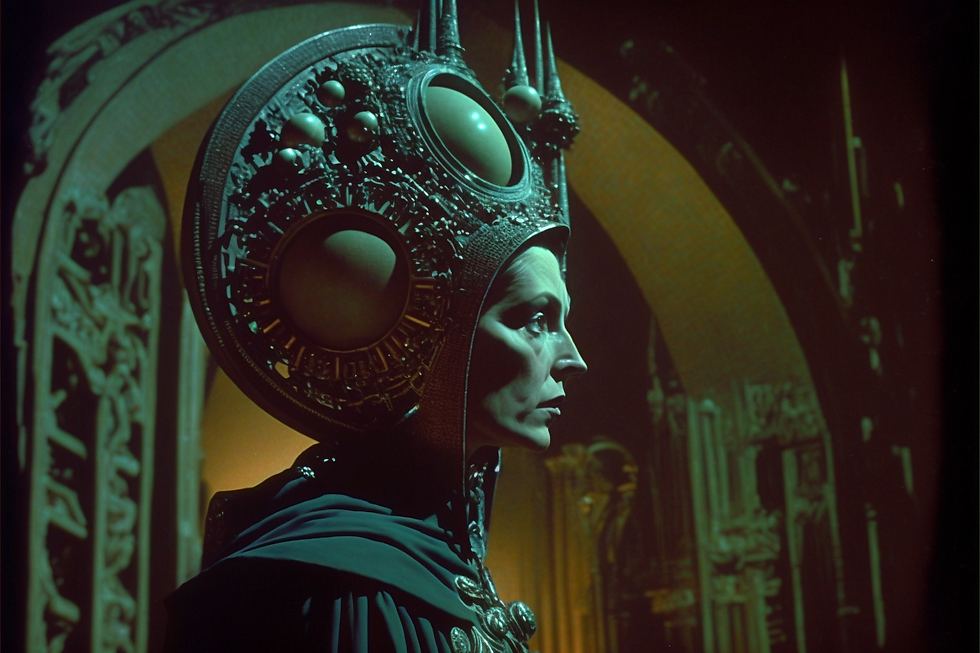Theological Sci-Fi
- Jim Dutton
- Sep 30, 2022
- 3 min read

Science Fiction has a long history of dealing with, well, long histories. Therefore, it frequently addresses big questions like,
How did the world begin and how might it end?
Are we alone in the universe?
How should we behave toward intelligent creatures of our own creation, and how should they behave toward us?
How might our belief systems be different in the far future, or in the distant past?
Are science and religion conflicting views of the universe, or are they ultimately the same thing?
What are the eternal truths?
Theology, the study of divinity (from the Greek theos + logos = logic of god) also deals with some of those same topics, and so it makes sense that sci-fi stories often allude to or directly reference social or cosmological ideas from theological and religious sources.
I was in high school the first time I read the novel A Canticle for Leibowitz by the American science fiction writer Walter M. Miller Jr. I’ve since returned to it twice more. The first time I found it to be a difficult read because it not only builds a new post-apocalyptic world but also populates it with tons of religious references and allusions to Judaism, Catholicism, and theology in general. The second time I read it, it made me uncomfortable, as I thought the author pushed his particular brand (Miller converted to Catholicism shortly after WWII) a little too hard. But the third time, I finally understood and enjoyed the vast scope of the story and the questions it raised.
The novel, based on three short stories Miller published in The Magazine of Fantasy & Science Fiction starting in 1955, tells the story of a Jewish man, the titular Leibowitz, who finds his calling in the Utah desert after a nuclear holocaust. He joins a remote monastery, becomes a monk, and ultimately is beatified and becomes Saint Leibowitz. Even the obvious irony of a Jewish man becoming a Catholic saint escaped my mostly empty young mind back in high school.
There were many other stories published during the golden age that dealt directly or indirectly with religious and theological topics in the genre of science fiction. Two of my favorites are from two of the most recognized authors of the period, Arthur C. Clarke and Isaac Asimov.
Clarke’s The Nine Billion Names of God — 1953 Star Science Fiction Stories
Asimov’s The Last Question — 1956 Science Fiction Quarterly
Asimov later wrote about his now famous short story, saying…
“This is by far my favorite story of all those I have written. After all, I undertook to tell several trillion years of human history in the space of a short story… I also undertook another task, but I won’t tell you what that was lest I spoil the story for you.”
After reading Clarke’s short story — on which the movie 2001: A Space Odyssey is partly based — Jack Haldane, a British mathematician and evolutionary biologist, wrote Clarke a letter that said…
“You are the only person to say anything original about religion for the last two thousand years. In fact, you have said several mutually incompatible things. If you had stuck to one hypothesis you might have been a serious public danger.”
Both of these stories are excellent examples of the kind of theological sci-fi stories we are challenging you to imagine and submit to SFS. If you haven’t read them, I urge you to follow the links above and read the online versions before you read another thing.



I find the topic of religion in a science-fiction Setting it's very interesting. The history of mankind cording to the Bible is actually very similar to the often explored concepts in science fiction, especially the early science fiction. It's fascinating, and when done well it's very thought provoking. Thanks for the recommended reading.